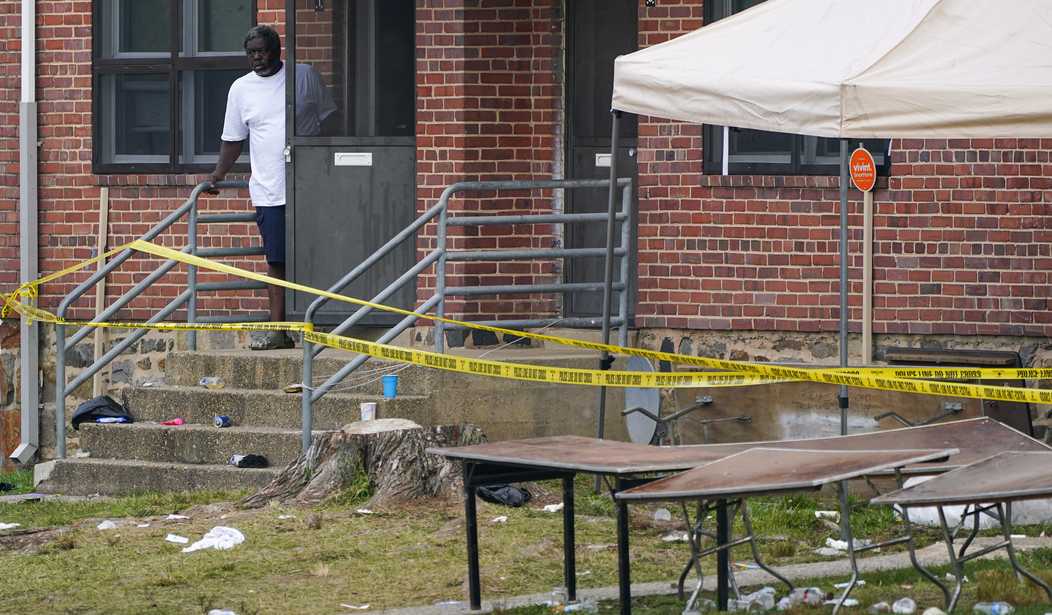This is one of the worst-kept secrets in the City of Baltimore, but it’s receiving a bit more public attention this summer. Charm City currently has an estimated 14,000 vacant homes. And in a city with a population of barely half a million people, that’s a lot of vacant housing. The large number of vacancies causes a multitude of problems, not the least of which is the continued downward pressure on real estate values. They also contribute to crime, particularly gang violence. Now Mayor Brandon Scott is proposing a partnership between the city and community organizers and faith leaders to start cleaning up the problem. But it’s going to cost billions of dollars and it’s not yet clear where that money will come from. (CBS News Baltimore)
A new initiative will bring together Baltimore leaders and faith organizations to help combat the city’s vacant home crisis.
WJZ has been covering this issue extensively for years.
The announcement of the partnership was made Sunday in a packed church in East Baltimore.
Baltimore Mayor Brandon Scott is partnering with organizations to build a steering committee together with a goal to get $7.5 billion to invest in vacant properties in Baltimore.
Of that $7.5 billion under discussion, more than $5 billion would need to come from private contributions. That’s a very large figure to ask for considering the city’s terrible track record at addressing the deplorable conditions out on the streets. But getting civic leaders and church groups to sign on is a hopeful sign, so perhaps some progress can be made.
Baltimore’s vacant homes are legendary and they were made famous in the HBO series The Wire. (Which was more of a documentary than a drama.) They were simply referred to as “the vacants.” Gang members would congregate in them and junkies would take refuge in them to shoot up, along with the homeless. Gang bangers would sometimes unseal homeless units to dump bodies in them before sealing them up again. From the sound of the descriptions being given by the people offering this new proposal, the show wasn’t very far off the mark.
I’m not criticizing the Mayor or the community leaders involved in this effort. They’ve got to try something. Baltimore has been a disaster area for years and the residents deserve some sort of effort to clean the place up. But even if they manage to raise the desired amount of money, obvious questions remain.
Let’s say that you take one of these vacant row homes and completely clean it out and refurbish it. For that matter, let’s say you do that to an entire block. What then? In order to prevent the homes from falling back into disrepair, you would have to find a buyer to reside there and maintain it. How many people with the financial assets to purchase a home are going to risk moving into one of those neighborhoods? I’m guessing not very many.
It seems to me that before you can rebuild a community of homeowners or even landlords with paying renters, you need to address the issues that drove people out of these neighborhoods to begin with. Get the gangs under control, lock up the worst, most violent criminals for a couple of decades, and make the police a permanent fixture on every corner. (Some of that $7.5 billion could go to expanding the police budget.) Then people will be more likely to invest in that sort of real estate.
Also, if they are open to suggestions, the cleanup and restoration should start from the outside of the worst areas and move inward. Begin with the vacant houses closest to the neighborhoods with less crime. People will be more willing to take a chance on those. Then continue working toward the worst areas, slowly shrinking the gangs’ real estate until you (hopefully) wipe it out entirely. I wish Baltimore the best in this effort. God only knows they could use the help.







